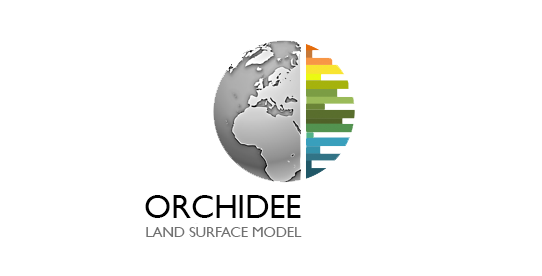| Version 16 (modified by peylin, 13 years ago) (diff) |
|---|
ORCHIDEE Retreat near Saint Remy les Chevreuse 19/20 Jan 2012
Documentation
See the summary under the Documentation page Documentation Retreat?
Brainstorming session
The brainstorming session last from 18H to 20H on thursday. We started with 4 short presentations describing the VISION of 4 researchers for ORCHIDEE and the possible evolution of the code for the next 3 to 5 years. The Presentations are linked below with a summary of the main points raised.
Nathalie Denoblet (presentation)
- Presentation of the history of ORCHIDEE developments and the current imbalance in the level of complexity between the hydrology and the carbon cycle.
- Emphasize on the need to harmonize the level of complexity and reinforce the evaluation strategy including evaluation of the coupled mode.
- Need to brainstorm on the potential use of the model for impact studies
- Reinforce the developments on agro-systems
Philippe Ciais (presentation)
- Need to consolidate past developments and to work on the consistency between these developments
- Raised out attention on the possible use of ORCHIDEE by industrial/private compagny; Intellectual property need to be clarified
- Resolution: Why not going to a reference very high resolution (1 km) simulation
- Automatisation: Potential of Near Real Time applications (within GMES) and maybe to "promote" ORCHIDEE for a use within ECMWF
- Frontier developments: Inclusion of the Phosphorus cycle, soil as a biota, complete integration of past disturbances, export of DOC and DIC, pedogenesis (soil alteration), Isotopes,...
Agnes Ducharne (presentation)
- Focussed her vision on the hydrology
- Need to adress carefully lateral flows when going to high spatial resolution
- Do not forget the spatial variations of soil properties!
- Need to Include a link with ground water over areas with shallow water table
Sebastiaan Luyssaert (presentation)
- We may need to move from climate science focuss (central in the past activities) to descision making strategy (including some integrated quantities like wood production or food supply,...)
- Land Manadgement becomes crucial
- Move from PFTs to species (group of species)
- Include the rivers as an ecosystem
We then had a fruitfull discussion on the different directions raised by these presentations. The discussion was supported by few additional slides on specific topics from 5 volunteers:
- Fabienne M. (presentation): she raised the issue of having currently too many branches and the need for more ingeniering power to have a comprehensive main trunc version.
- Valentin B. (presentation) : Current model version is not easy to use; We should thing on a more easy way to set up simulations with a friendly interface
- Nicolas Viovy (presentation): One major challenge is to include specific "Traits" for differents species (moving from PFT to species)
- Bertrand G. (presentation): The importance of the Nitrogen cycle has not yet been fully accounted; need to include the N cycle in the main trunc version
- James R. (presentation): The current energy budget scheme based on a big leaf approach is probably a severe limitation! A complete reformulation is probably as critical as other biogeochemical developments...
Apart from these scientific points, we had a long discussion on the ratio of Ingineer or common support to researcher. For most of us the support to integrate all developments and maintain the code is too small. One proposition is to raise funds out of the numerous projects that are/will be using ORCHIDEE. Such tax could serve to hire mutualized ingineers to work on the integration of all branches!
Organisational issue: planning of the meetings
We had a short discussion about the organization of the different ORCHIDEE meetings and the inclusion of the CDDS (PhD, Post-Doc, ...) in these meetings. So far we have regular meeting each thursday ("réunion de suivi") and few "réunion projet" (each 1.5 month) that are restricted to the core team project (permanents). The CDDs expressed again their expactation and strong whish for regular meeting around "Who is doing what?" and "How the model evolves?".
From this discussion, we proposed the following functioning:
- All meeting will take place thursday morning from 10h to 11h or from 10h to 12h
- The succession of meetings will be :
